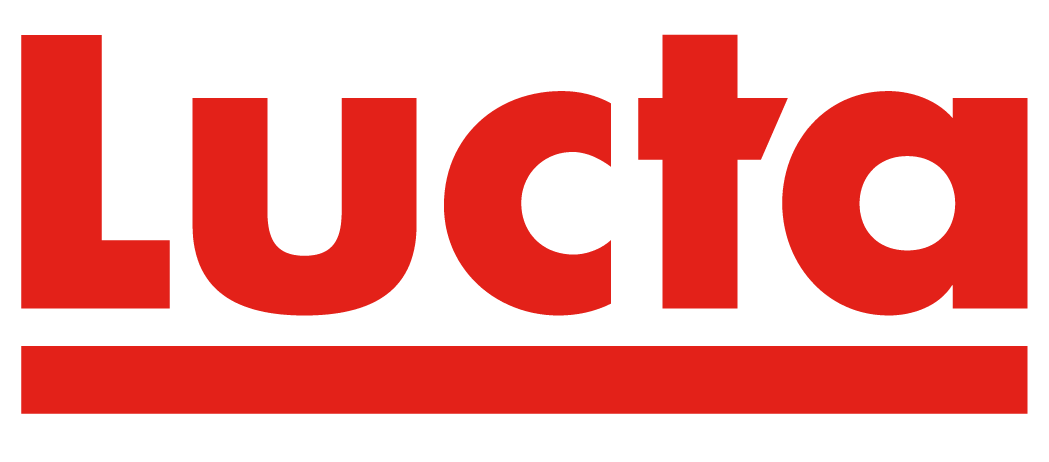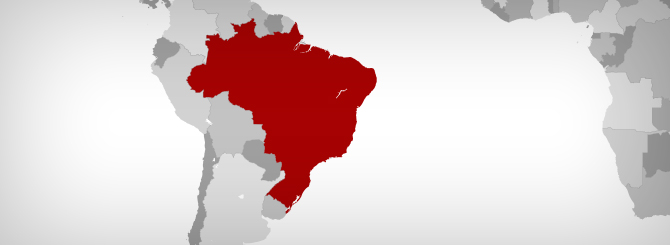
Lucta do Brasil Comercial Ltda.
All invoices issued to Lucta do Brasil Comercial Ltda. must necessarily and obligatorily include the following particulars:
- Company name (name of supplier company/person)
- CNPJ – National Legal Entity Identity Number (Catastro Nacional de Persona Jurídica) (in the case of companies)
- CPF – Natural Person Identity Number (Catastro de Persona Física) (in the case of individuals)
- I.E. – Provincial Registration (if the company has one)
- Description of the operation – service/sale
- I.R. – Income Tax (if any)
- ICMS – Tax on the circulation of goods and services (if any)
- ISS – Tax on services (if any)
- INSS – Tax on Social Security contribution (if any)
- PIS (social integration program) / COFINS (contribution for the financing of social
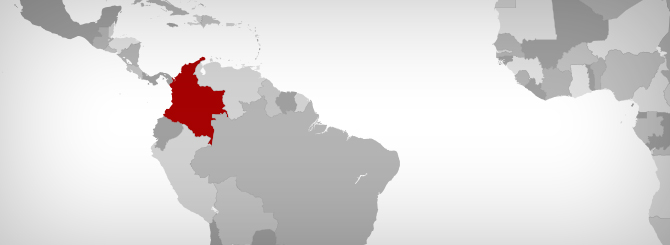
Lucta Grancolombiana S.A.S.
For tax purposes, the issuing of invoices referred to in article 615 of the Tax Statute of Colombia consists of submitting the original invoice, including the following information:
- Invoice named expressly as a sales invoice
- Surnames and name or company name and tax identification number (NIT) of seller or party rendering the service
- Surnames and name or company name and NIT of purchaser of the goods or services, along with breakdown of the value added tax (IVA) paid
- Invoice numbered according to a sales invoice consecutive numbering system Date of issuance of the invoice
- Date of issuance of the invoice
- Specific or general description of the articles sold or services rendered
- Specific or general description of the articles sold or services rendered
- Name or company name and NIT of the invoice printer
- The status of the sales tax withholder
When the invoice is issued, the requirements of the literals a), b), d) and h) must be previously printed by lithographic, typographic or similar industrial techniques. When the taxpayer uses a computer or cash register invoicing system, the printing performed by such means is understood to have fulfilled the requirements for prior printing. The invoicing system shall number the invoices consecutively and the means necessary for its verification and inspection shall be provided.
DETAILS:
- Full company name: LUCTA GRANCOLOMBIANA S.A.S.
- Tax identification number: 860001999 – 7
- Address: VIA AUTODROMO KM 2 TOCANCIPA – COLOMBIA

Lucta, S.A.
All invoices issued to Lucta, S.A. must include, without exception, the following details:
- Supplier’s full company name (legal entities) or full name and surname (natural persons) and Lucta, S.A.’s full company name
- Supplier’s tax identification number as issued by the Spanish tax authorities or the tax authorities of another EU Member State
For suppliers from the EU, the VAT identification number (intra-Community operator number) must be included.
- Tax identification number (NIF) of Lucta, S.A.
- Registered address of the Supplier and of Lucta, S.A.
- Invoice number and series
- Date of issuance of the invoice
- Date of completion of the transactions, where this date differs from the issuance date or in the case of a rectification invoice
The date of completion of the transactions is the date when the corresponding VAT is due.
- Description of the transactions
All the necessary details to determine the taxable base and its amount must be recorded, as well as the unit price of the product before applicable taxes and/or discounts.
Where various operations are included in the same invoice, the taxable base corresponding to the following transactions shall be recorded separately:
(i) transactions which are exempt from VAT or not subject to VAT and transactions where this is not the case.
(ii) transactions wherein the person liable to VAT is the recipient (i.e. applying the reverse charge mechanism) and transactions where this is not the case.
(iii) transactions subject to different VAT rates.
- Tax rate applied to the transaction.
- Tax quota charged (detailed individually).
- In cases exempt from VAT or not subject to VAT, reference to the relevant articles in the Sixth Council Directive 77/388/EEC, of 17 May, relating to Common System of Value Added Tax, to the articles of the Spanish Value Added Tax Law 37/1992, of 28 December, or brief explanation of the reasons for the exemption or non-subject status.
Details of Lucta, S.A.:
- Full company name: Lucta, S.A.
- Tax identification number: ES A08074908
- Registered office and tax address: Calle Serrano, 110, 1º (Despacho 2). 28006 Madrid. Spain.
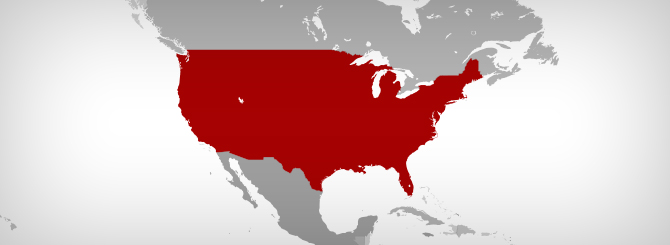
Lucta USA LLC
A commercial invoice, signed by the seller or shipper, or their agent, is acceptable for CBP (U.S. Customs and Border Protection) purposes if it is prepared in accordance with Section 141.86 through 141.89 of the CBP Regulations, and in the manner customary for a commercial transaction involving goods of the kind covered by the invoice. Importers and brokers participating in the Automated Broker Interface may elect to transmit invoice data via the Automated Invoice Interface or EDIFACT and eliminate the paper document. The invoice must provide the following information, as required by the Tariff Act:
- The port of entry to which the merchandise is destined
- If merchandise is sold or agreed to be sold, the time, place, and names of buyer and seller; if consigned, the time and origin of shipment, and names of shipper and receiver
- A detailed description of the merchandise, including the name by which each item is known, the grade or quality, and the marks, numbers, and symbols under which it is sold by the seller or manufacturer to the trade in the country of exportation, together with the marks and numbers of the packages in which the merchandise is packed
- The quantities in weights and measures
- If sold or agreed to be sold, the purchase price of each item in the currency of the sale
- If the merchandise is shipped for consignment, the value of each item in the currency in which the transactions are usually made, or, in the absence of such value, the price in such currency that the manufacturer, seller, shipper, or owner would have received, or was willing to receive, for such merchandise if sold in the ordinary course of trade and in the usual wholesale quantities in the country of exportation
- The kind of currency
- All charges upon the merchandise, itemized by name and amount including freight, insurance, commission, cases, containers, coverings, and cost of packing; and, if not included above, all charges, costs, and expenses incurred in bringing the merchandise from alongside the carrier at the port of exportation in the country of exportation and placing it alongside the carrier at the first U.S. port of entry. The cost of packing, cases, containers, and inland freight to the port of exportation need not be itemized by amount if included in the invoice price and so identified. Where the required information does not appear on the invoice as originally prepared, it shall be shown on an attachment to the invoice
- All rebates, drawbacks, and bounties, separately itemized, allowed upon the exportation of the merchandise
- The country of origin
- All goods or services furnished for the production of the merchandise not included in the invoice price
If the merchandise on the documents is sold while in transit, the original invoice reflecting this transaction and the resale invoice or a statement of sale showing the price paid for each item by the purchaser shall be filed as part of the entry, entry summary, or withdrawal documentation.
The invoice and all attachments must be in the English language, or shall be accompanied by an accurate English translation.
Each invoice shall state in adequate detail what merchandise is contained in each individual package.
If the invoice or entry does not disclose the weight, gauge, or measure of the merchandise necessary to ascertain duties, the importer of record shall pay expenses incurred to obtain this information prior to the release of the merchandise from CBP custody.
Each invoice shall set forth in detail, for each class or kind of merchandise, every discount from the list or other base price that has been or may be allowed in fixing each purchase price or value.
When more than one invoice is included in the same entry, each invoice with its attachments shall be numbered consecutively by the importer on the bottom of the face of each page, beginning with number 1. If an invoice is more than two pages, begin with number 1 for the first page of the first invoice and continue in a single series of numbers through all the invoices and attachments included in one entry. If an entry covers one invoice of one page and a second invoice of two pages, the numbering at the bottom of the page shall be as follows: Inv. 1, p.1; Inv. 2, p.2; Inv. 2, p.3, etc.
Any information required on an invoice may be set forth either on the invoice or on the attachment.
Specific Requirements
1. Separate Invoice Required for Each Shipment. Not more than one distinct shipment from one consignor to one consignee by one commercial carrier shall be included on the same invoice.
2. Assembled Shipments. Merchandise assembled for shipment to the same consignee by one commercial carrier may be included in one invoice. The original bills or invoices covering the merchandise, or extracts therefrom, showing the actual price paid or agreed to be paid, should be attached to the invoice.
3. Installment Shipments. Installments of a shipment covered by a single order or contract and shipped from one consignor to one consignee may be included in one invoice if the installments arrive at the port of entry by any means of transportation within a period not to exceed 10 consecutive days.
The invoice should be prepared in the same manner as invoices covering single shipments and should include any additional information that may be required for the particular class of goods concerned. If it is practical to do so, the invoice should show the quantities, values, and other invoice data with respect to each installment, and the identification of the importing conveyance in which each installment was shipped.
4. Production “Assist”. The invoice should indicate whether the production of merchandise involved costs for “assists” (e.g., dies, molds, tooling, printing plates, artwork, engineering work, design and development, financial assistance, etc.) that are not included in the invoice price. If assists were involved, state their value, if known, and by whom supplied. Were they supplied without cost, or on a rental basis, or were they invoiced separately? If the latter, attach a copy of the invoice.
Whenever CBP requires information on the cost of production of goods for customs valuation, the importer will be notified by the port director. Thereafter, invoices covering shipments of such goods must contain a statement on the cost of production by the manufacturer or producer.
5. Additional Information Required. Special information may be required on certain goods or classes of goods in addition to the information normally required on the invoice. Although the United States importer usually advises the exporter of these special situations, section 141.89 of the CBP Regulations, which covers the requirements for these goods, has been reproduced in the appendix.
6. Rates of Exchange. In general, no rate(s) of exchange may be used to convert foreign currency for customs purposes other than the rate(s) proclaimed or certified in 31 U.S.C. 5151. For merchandise imported from a country having a currency for which two or more rates of exchange have been certified by the Federal Reserve Bank of New York, the invoice will show the exchange rate or rates used in converting the United States dollars received for the merchandise into the foreign currency and the percentage of each rate if two or more rates are used. If a rate or combination of rates used to pay costs, charges, or expenses is different from those used to pay for the merchandise, state that rate or combination of rates separately. When dollars have not been converted at the time the invoice is prepared, state that fact on the invoice, in which case the invoice shall also state the rate or combination of rates at which the dollars will be converted, or that it is not known what rate or rates will be used. Rates of exchange are not required for merchandise unconditionally free of duty or subject only to a specific rate of duty not depending on value.
Other Invoices
Pro Forma Invoice
If the required commercial invoice is not filed at the time the merchandise is entered, a statement in the form of an invoice (a pro forma invoice) must be filed by the importer at the time of entry. A bond is given for production of the required invoice not later than 120 days from the date of the entry summary, or entry if there is no entry summary. If the invoice is needed for statistical purposes, it must generally be produced within 50 days from the date on which the entry summary is required to be filed.
The exporter should bear in mind that unless he or she forwards the required invoice in time, the American importer will incur a liability under his bond for failure to file the invoice with the port director of CBP before the 120-day period expires.
Although a pro forma invoice is not prepared by the exporter, it is of interest to exporters as it gives a general idea of the kind of information needed for entry purposes. A pro forma invoice indicates what the importer may find necessary to furnish CBP officers at the time a formal entry is filed for a commercial shipment, if a properly prepared CBP or commercial invoice is not available at the time the goods are entered. An acceptable format for a pro forma invoice is reproduced in the appendix.
Some of the additional information specified for the commodities under section 141.89 of the CBP Regulations may not be required when entry is made on a pro forma invoice. However, the pro forma invoice must contain sufficient data for examination, classification, and appraisement purposes.
Special Invoices
Special invoices are required for some merchandise. See 19 CFR 141.89.
Frequent Errors In Invoicing
Foreign sellers or shippers must exercise care in preparing invoices and other documents used to enter goods into the commerce of the United States in order for their importers to avoid difficulties, delays, or possibly even penal sanctions. Each document must contain all information required by law or regulations, and every statement of fact contained in the documents must be true and accurate. Any inaccurate or misleading statement of fact in a document presented to a CBP officer in connection with an entry, or the omission from the document of required information, may result in delays in merchandise release, the detention of the goods, or a claim against the importer for domestic value. Even though the inaccuracy or omission was unintentional, the importer may be required to establish that he exercised due diligence and was not negligent, in order to avoid sanctions with consequent delay in obtaining possession of goods and closing the transaction. (See 19 U.S.C. 1592.).
It is particularly important that all statements relating to merchandise description, price or value, and amounts of discounts, charges, and commissions be truthfully and accurately set forth. It is also important that the invoices set forth the true name of the actual seller and purchaser of the goods, in the case of purchased goods, or the true name of the actual consignor and consignee when the goods are shipped otherwise than in pursuance of a purchase. It is important, too, that the invoice otherwise reflect the real nature of the transaction pursuant to which the goods were shipped to the United States.
The fundamental rule is that both the shipper and importer must furnish CBP officers with all pertinent information with respect to each import transaction to assist CBP officers in determining the tariff status of the goods. Examples of omissions and inaccuracies to be avoided are:
- The shipper assumes that a commission, royalty, or other charge against the goods is a so-called “nondutiable” item and omits it from the invoice.
- A foreign shipper who purchases goods and sells them to a United States importer at a delivered price shows on the invoice the cost of the goods to him instead of the delivered price.
- A foreign shipper manufactures goods partly with the use of materials supplied by the United States importer, but invoices the goods at the actual cost to the manufacturer without including the value of the materials supplied by the importer.
- The foreign manufacturer ships replacement goods to his customer in the United States and invoices the goods at the net price without showing the full price less the allowance for defective goods previously shipped and returned.
- A foreign shipper who sells goods at list price, less a discount, invoices them at the net price, and fails to show the discount.
- A foreign shipper sells goods at a delivered price but invoices them at a price f.o.b. the place of shipment and omits the subsequent charges.
- A foreign shipper indicates in the invoice that the importer is the purchaser, whereas he is in fact either an agent who is receiving a commission for selling the goods or a party who will receive part of the proceeds of the sale of the goods sold for the joint account of the shipper and consignee.
- Invoice descriptions are vague, listing only parts of numbers, truncated or coded descriptions, or lumping various articles together as one when several distinct items are included.
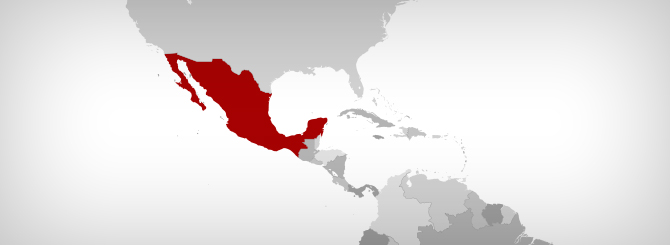
Lucta Mexicana S.A. de C.V.
All invoices issued to Lucta Mexicana, S.A. de C.V. under section 29 of the Taxation Code of the Federation, must obligatorily contain the following details:
- Original
- Sheet
- Company name
- Federal Registry of Taxpayers (RFC, TAX ID NO., etc.)
- Date of issuance
- Specific or generic description of the goods sold or services provided
- Total value of the operation and currency in which the invoice is issued
- Where applicable, state expressly and separately any Value Added Tax (VAT) charged
- The name and/or company name of the printer of the invoice, together with the RFC and the date of printing of invoices
- Payment terms (cash, credit in days)
If the invoice is electronic, it must also contain the following:
- Bidimensional Code
- Digital Stamp
- Original bit-string
- Tax page of the SAT (Tax Administration System)
- Payment method: Bank Transfer or Banamex 2251 Cheque and/or Citibank 4301
- Tax system under which tax is paid.
Details of Lucta Mexicana, S.A. de C.V.:
- Full company name: Lucta Mexicana, S.A. de C.V.
- Federal Registry of Taxpayers (RFC): LME650630V75
- Registered office:
Poniente 122, No. 673
Col. Las Salinas
Del. Azcapotzalco, Mexico, D.F.
C.P. 02360

Lucta Polska Sp. z o.o.
Any invoices issued to Lucta Polska must at least include the following details:
- Supplier’s full company name (legal entities) or full name and surname (natural persons) and Lucta Polska full company name and addresses
- Supplier’s tax identification number as issued by the Polish tax authorities or the tax authorities of another EU Member State. For suppliers from the EU, the VAT identification number should be preceded by country code e.g. for supplier from Poland it will be ‘PL’.
- Tax identification number of Lucta Polska
- Registered address of the Supplier and of Lucta Polska
- Term “VAT Invoice” and number of invoice
- Day, month and year of invoice, and if this date differs from the date of sale, the date of sale or date of service
- Description of the transactions, in particular:
Name of goods or services
Quantity of goods sold or the scope of services rendered
Unit price of goods or services without the amount of tax
Value of goods or services without VAT
- Tax rate applied to the transaction
- Sum of the net sales value of goods or services specifying tax rates
- Amount of tax specifying tax rates
- Amount due with tax
Details of Lucta Polska Sp. z o.o.:
- Full company name: Lucta Polska Sp. z o.o.
- Tax identification number: PL 9542299810
- Registered address:
ul. Kolejowa 57
40-602 Katowice
Poland
